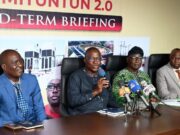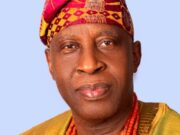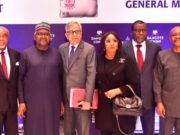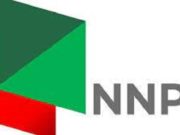President Bola Tinubu has said despite the pains occasioned by the removal of fuel subsidy and other economic reforms introduced by his administration, Nigerians will start reaping the benefits of these sacrifices soon.
Tinubu stated this on Monday in his address at the opening of the 2024 Annual National Management Conference of the Nigerian Institute of Management (Chattered) with the theme ‘Economic Stability and National Security: the Contending Issues and the Way Forward’ held in Port Harcourt, Rivers State.
Represented by the Head of Service of the Federation, Didi Esther Walson-Jack, the President, who was the Special Guest of Honour at the event, explained that the decisions were aimed at stabilising the weak economy which he inherited.
He said within the short time he had been in charge of steering the ship of the nation, his administration had made appreciable strides in diversifying the economy, with significant investments in some critical sectors, such as agriculture, technology, and renewable energy.
He stated, “In the bid to quickly kick-start and stabilise the weak economy which we inherited, we have taken some hard decisions through the economic reforms introduced so far such as the floating of the naira and removal of fuel subsidy.
“We recognise the fact that the pains occasioned by these reformative economic policies have been biting hard on the citizenry but we are convinced that the nation’s economy and the Nigerians will start reaping the benefits of all the sacrifices in no distant time.”
He said the large number of professional managers comprising decision-makers in both the public and private sectors of the nation’s economy at the event was a gathering of brilliant minds dedicated to the advancement of good management practices in Nigeria.
“Let me begin by expressing my sincere appreciation to the Nigerian Institute of Management for their invaluable contributions to the development of our nation. Your commitment to excellence in management is vital for it is through good management that we can unlock the full potential of our resources and human capital.
“The theme of this Conference, ‘Economic Stability and National Security: The Contending Issues and the Way Forward’, is apt and relevant towards charting a new course and national rebirth for the country in line with the eight-point agenda of the Federal Government aimed at turning around the economy and make life easier for the citizenry,” Tinubu added.
While noting that the nation stands at a crossroads where the interplay between economic health and national security cannot be overstated, he said these two pillars were intrinsically linked, saying, “Our strategies must reflect that reality.
“By choosing this theme as the focus of this year’s Conference, the Institute has further demonstrated that it is committed to supporting the Federal Government in achieving its drive to reposition and turn around the nation’s economy and set it on the path of real development and progress. You have indeed proven, once again, to be partners in progress with the government.”
He said in addition to economic drawbacks, the country faces a myriad of security challenges, including terrorism, banditory, kidnapping and communal clashes, which requires a multifaceted approach to tackle them,
“It is imperative that we adopt a multifaceted approach to both economic and security challenges. We must enhance our intelligence capabilities, strengthen community policing, and ensure that our security forces are adequately equipped.
“Moreover, addressing the root causes of insecurity such as poverty, unemployment, and inadequate education is essential to ensuring lasting peace,” Tinubu said.
While lauding the NIM’s contributions and support towards national development which according to him the body has demonstrated this through its Public Policy Advocacy and other programmes, he urged the institute to improve its visibility at public sections of the National Assembly.
“I further challenge the Institute to improve its visibility at public sessions of the National Assembly when bills are being considered so as to make more robust professional management input that will be most relevant in the public domain. The Federal Government will appreciate the involvement of the institute in the key function areas of governance where the services of professional bodies are needed.”
Speaking, Rivers State Governor, Siminalayi Fubara, represented by his Deputy, Prof. Ngozi Odu, described the theme of the conference as ‘timely’ and ‘apt’ at a time when the nation was in dire need of solutions to contending issues.
Fubara emphasised the need for a collective effort to address Nigeria’s economic and security challenges, saying Rivers State was experiencing firsthand the impact of economic instability on local communities, businesses, and government operations, adding that economic stability cannot be achieved in isolation, as it is inextricably linked with national security.
He highlighted the complex interplay between economic stability and national security, citing resource allocation, youth unemployment, regional disparities, and corruption as contending issues.
The governor said in Rivers State, the impact of oil theft on revenue, environmental degradation, and security challenges in the Niger Delta region underscored the complexity of these problems and urged conference attendees to take away not just ideas but a renewed commitment to action.
The President and Chairman of the Nigerian Institute of Management, Christiana Atako, emphasised the critical need for collective action to address Nigeria’s economic and security challenges.
Atako noted that Nigeria, regarded as one of Africa’s economic powerhouses due to its abundant resources and diverse populace, grapples with several economic and security challenges that directly impact its economy.
She said, “As a developing nation, Nigeria grapples with several economic and security challenges. Presently, the nation is undergoing some economic reforms, including the removal of petroleum products subsidy and floating of the naira, Nigeria’s currency; two policies which appear to have a negative immediate to short-term impact on both cost and standard of living of the citizenry.
“While the challenges of national security faced by the nation range from insurgency to conflicts between farmers and herders, banditry, organised crime, kidnapping for ransom and other forms of criminality, these security threats do not only undermine national security, stability and the rule of law but also gave precipitated untold adverse effect on the economy, affecting price, output, employment, the balance of trade, poverty, etc.
“The way forward for Nigeria’s economic stability and national security involves a multi-faceted approach that will engender the development of no-oil sectors like agriculture, manufacturing and services. Improvement of power supply, transportation, and telecommunications; support of small and medium scale enterprises and innovation, and better debt management will equally play a big role. Reduction in corruption, increase in transparency and investment in education, healthcare and skills training should also be given priority.”
The keynote speaker, Dr Ajoritsedere Awosika, emphasised the need for collective action to address Nigeria’s economic and security challenges, saying Nigeria’s journey has been affected by trials, and the country is currently faced with the daunting task of securing its economy and safeguarding its nation.
Awosika, further said unemployment, particularly among young people, is a pressing issue that not only threatens the economy but also national security, with millions of educated and skilled youths unable to find meaningful jobs and the country’s economic stability is compromised.
Credit: punchng.com









































































